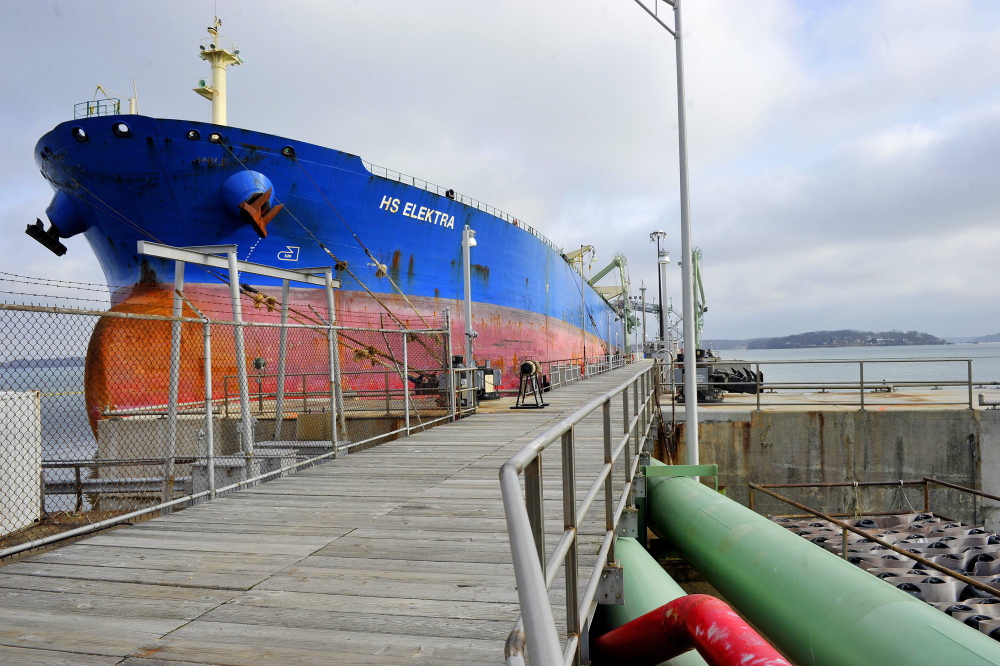The narrow defeat last month of the South Portland Waterfront Protection Ordinance didn’t put to rest efforts to keep Canadian tar sands oil from being shipped through the city’s port. Far from it.
The day after the citizen-initiated referendum was rejected, city councilors started reviewing a six-month moratorium on any project that would bring tar sands to South Portland. On Monday night, the council voted in favor of the moratorium, effective until May 6.
This sets the stage for the city to draft its own ordinance governing waterfront activity. One doesn’t have to have supported the Waterfront Protection Ordinance to believe that the city should regulate tar sands – so this is a move in the right direction that both recognizes residents’ concerns and allows for regulations to arise from the lawmaking process.
Like the moratorium, the Waterfront Protection Ordinance targeted the loading of tar sands onto ships in the city. But the failed proposal also would have banned any expansion or alteration of petroleum facilities that would change their function or capacity.
As written, then, the ordinance could have been interpreted so as to keep all businesses that receive, store or transport oil from updating their equipment or facilities. Fearing unintended harm to waterfront development, South Portland voters rejected the proposal.
But their worries about tar sands remain and shouldn’t be dismissed. If Portland Pipe Line Corp. were allowed to reverse the flow of its underground pipeline to bring tar sands oil here from Alberta, the pipe could threaten the environment. Pipeline ruptures elsewhere raise the prospect of spills here that could affect the safety of the Portland area’s drinking water. And in Canada, a provincial legislative committee has fanned critics’ fears by supporting energy giant Enbridge Inc.’s proposal to reverse a pipeline to bring tar sands to Quebec.
South Portland’s moratorium will allow a council-appointed three-person panel to weigh these concerns as it works with a facilitator to draft a tar sands ordinance. The committee should include local petroleum industry representatives as well as opponents of tar sands. For the democratic process to work, everyone concerned about an issue deserves the chance to speak.
That said, the American Petroleum Institute – the powerful national industry lobbying group – has no case for its heavy-handed threat of legal action against the city for approving the moratorium. It would take far longer than six months for Portland Pipe Line to secure official backing for bringing tar sands to South Portland; in a highly publicized move, the company in October surrendered a permit it would have needed to reverse the underground pipeline’s flow. All the city has done is put off something that can’t be done now anyway.
The Waterfront Protection Ordinance campaign brought up many issues that deserve to be studied and addressed. City councilors have done the right thing by creating a framework in which this discussion can proceed in a focused and effective manner.
Send questions/comments to the editors.



Success. Please wait for the page to reload. If the page does not reload within 5 seconds, please refresh the page.
Enter your email and password to access comments.
Hi, to comment on stories you must . This profile is in addition to your subscription and website login.
Already have a commenting profile? .
Invalid username/password.
Please check your email to confirm and complete your registration.
Only subscribers are eligible to post comments. Please subscribe or login first for digital access. Here’s why.
Use the form below to reset your password. When you've submitted your account email, we will send an email with a reset code.